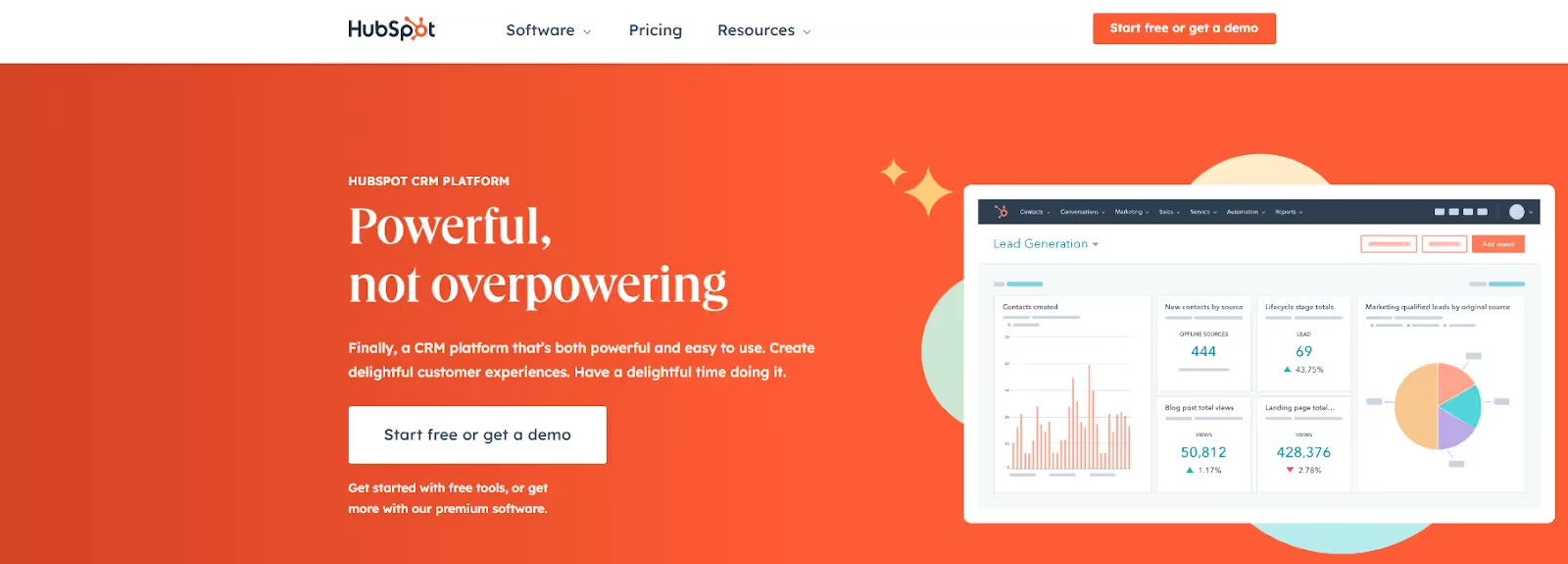Marketing automation is one crucial step that allows professionals to upgrade from a good business to a great one. Think of it as a robot that does all of the housework for you, so you can focus on your children. In its simplest form, marketing automation is a set of tools that manages marketing processes and multifunctional campaigns, across multiple channels, automatically.
The function of these tools is to streamline some of the hardest processes that exist in both sales and marketing. This automation allows for increased revenue and greater efficiency by reducing human error. Enabling any staff to focus on higher level problems instead of putting out fires.
From automated emails for cart abandonment, to automated order, product, and customer tagging using custom rules. These tools become invaluable to any growing ecommerce business. It allows a busy professional to not have to press “send” on every email, social post, message, or order.

Regardless of whether you’re doing ecommerce in-house, as a freelancer, or for your own shop, it’s a good idea to rely on automation to do the heavy lifting.
Take returns processing, for example. When you first got started, sure, it might’ve made sense to process these manually. You were selling in lower volumes and didn’t see many returns anyway.
But now that you’ve ramped up your ecommerce business, automating this piece can free up your time, and let you focus on refining your strategy.
Automation doesn’t just help with operations, by the way. You can also use automation tools to generate more leads, and market to customers. In fact, research shows that 77% of marketers generate more leads with marketing automation.

In this article, we’ve rounded up 11 free automation tools that can help you with your email marketing, inventory management, website optimization, and more. Read on to find out more!
Free marketing tools
Email marketing: MailChimp and HubSpot
A great email marketing strategy is crucial in helping any ecommerce business grow. Think abandoned cart emails, product recommendations, new launch emails - all that good stuff.

Check out MailChimp, which has a free email plan that comes with more features than you’d expect. With the free plan, you get email automations, and other marketing features such as landing pages, pop-up forms, marketing calendar, and more.
For more information: MailChimp

Another option is HubSpot, which offers email marketing software as part of their (free) Marketing Hub. With their tool, you can easily test and optimize emails for every device type, design emails with a drag-and-drop editor and integrate with HubSpot’s sales CRM software to personalize your emails and build your lists.
For more information: HubSpot
Referral marketing: Referral & Affiliate Marketing App
If you haven’t already tried referral marketing, it’s something that you’ll want to do, ASAP. With referral marketing, you’re essentially getting your customers to promote your brand, and help you acquire new customers.

Check out the (aptly named) Referral & Affiliate Marketing App on Shopify - this allows you to add popups to your ecommerce store and create automated referral links for your customers.
For more information: Referral & Affiliate Marketing app
Live chat: Tawk.to
It’s 2022 - live chat isn’t just a nice-to-have; it’s a must-have.
While live chat itself isn’t technically considered automation, there are several ways in which you can automate your live chat workflow. For example, you may set up canned responses, or set up your chat tool to automatically share links to an FAQ page or knowledge database.

For live chat, we recommend tawk.to. This tool is packed to the brim with so many features, it’s hard to believe it’s free. Screen-sharing, file transfer, message filtering, scheduler, agent alerts, tracking engagement and history… you name it, they do it.
For more information: Tawk.to
Free SEO tools
SEO optimization: All in One SEO plugin
Any ecommerce professional who is worth their weight in salt knows the importance of Search Engine Optimization (SEO). It can take any product listing from the bottom of the barrel straight to the featured page. Any tool that can help with SEO literally pays for itself.

If you’re looking for an SEO plugin to help ease your workload, check out All in One SEO plugin for WordPress. Amongst other things, it helps you automatically generate meta tags for product pages, and it generates your WordPress sitemaps for you as well.
For more information: All in One SEO plugin
Free website optimization tools
Image optimization: Smush plugin
Like SEO, image optimization is tiresome, but important to get right. According to research, the highest ecommerce conversion rates occur on pages that load within 0-2 seconds. And with each additional second of load time, your conversion rate drops by an average of 4.42%.

We’ll do the math: Say you’re making $20,000 in monthly revenue and your current conversion rate is 5%. If you optimize your images and this reduces your loading time by just one second, this can potentially give you close to an extra $1,000 per month in sales.
To automate your image optimization, check out Smush, which is a WordPress plugin. This resizes, optimizes, and compresses all of your images automatically.
For more information: Smush plugin
Shipping bar: Free Shipping Bar plugin
Want to increase your Average Order Value? One easy way to do this is to highlight your free shipping threshold, so that customers add more items to their cart.
To do this, use the Free Shipping Bar plugin from Shopify. This reminds your customers about your free shipping policy, so that they add more items to their cart to reach the minimum amount.
%20(1)%20(1).avif)
In terms of automation, the bar automatically shows progressive messages to your customers. This means your customer first sees the full amount (e.g., “$40 to unlock free shipping!”), and as they add items to the cart, the message automatically updates to how much more they need to hit the threshold.
Aside from that, you can also display different free shipping offers based on country, pages, device and customer groups.
For more information: Free Shipping Bar plugin
Free inventory management tools
Inventory management: Zoho
Inventory management is at the heart of every ecommerce store. Nail your inventory management, and you’ll have a good foundation to build on. Get inventory management wrong, and this will generate a whole host of other problems for you.

A reputable inventory management tool is Zoho. This software allows you to keep track of your entire sales activity - you can create sales orders and invoices using the tool, and even manage sales on different marketplaces. The tool comes with built-in automation, so your inventory valuation and sales and purchase history reports get automatically updated on a real-time basis.
For more information: Zoho
Free workflow management tools
Returns and exchanges: Re:do app
Here’s the harsh truth - with big box retailers providing free returns by default, shoppers have come to expect this from ecommerce businesses as a whole. But processing returns manually is a hassle and it eats into your time.

To automate your returns process, we recommend the Re:do app from Shopify. Simply set your parameters, and the software will automatically process an exchange, return either for credit or refund
For more information: Re:do
Product reviews: Judge.me app
Social proof is huge - and who’s going to buy a product when it hasn’t been reviewed before? That’s where product review tools come in.

Take the Judge.me app on Shopify, for example. The app allows you to automatically collect and display text, photo and video reviews on your website. You can also set up a review carousel, which is essentially a spinning showcase of your customer's opinions that show off your best ratings.
For more information: Judge.me
Tagging: Auto Tags app
Tagging is a great way of streamlining your order management and categorizing products to enhance discovery. Again, doing it manually is far from the best use of your time - but there’s a tool that can help you with that.
%20(1).avif)
Check out the Auto Tags app on Shopify, which lets you automate order, product and customer tagging using custom rules. For example, you might want to tag customers based on lifetime value tiers, tag orders containing a specific product or SKU, or tag orders placed on specific sales channels (e.g., Amazon vs Shopify POS). Once you set up these workflows, all the tagging will be done automatically.
For more information: Auto Tags
A final word on ecommerce automation
In the world of ecommerce, it’s not about working hard, it’s about working smart.
There’s no sense in spending your time on manual processes such as image optimizations or product tags. So, take advantage of automation, so that you can spend more time on strategic planning and growing your revenue.




%20What%20Merchant%20Center%20Checks%20Every%20Time%20Your%20Prices%20Change.png)


